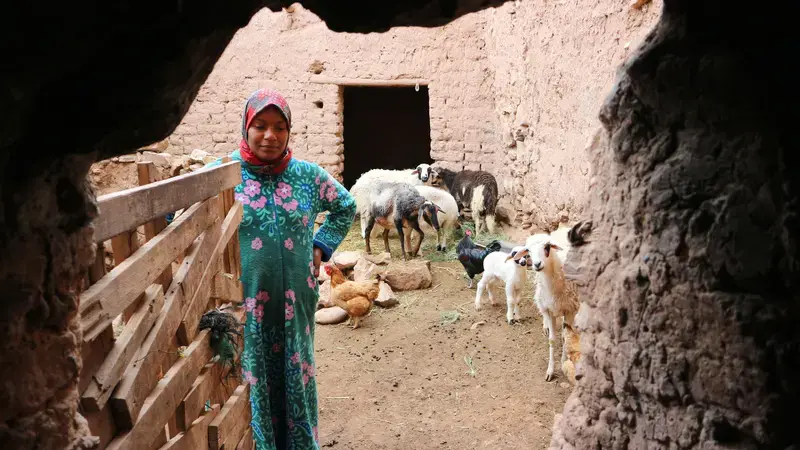How livestock can empower women farmers

In the Global South, livestock has strong empowerment potential for millions of women by providing protein-rich food for home consumption and sale, strengthening their role as stakeholders.
However, in many rural communities, gender norms shape how household members manage and share livestock and their benefits, often in ways that disadvantage women and girls. For example, women graze small livestock species, while men own larger, more profitable animals. Cultural norms can also forbid women from farm labor and may limit their access to land and fodder, restricting their ability to develop their livestock holdings and farm independently.
Dr. Dina Najjar, ICARDA’s Gender Scientist, has published a paper that explores women’s experiences with livestock-based livelihoods and technological innovations by studying 73 village cases from 13 countries. The study follows a gender empowerment framework that analyzes the recognition of women as livestock keepers, their access to resources and opportunities, and their ability to make decisions.
The paper finds that improved livestock breeds and associated innovations, such as fodder choppers or training, provide women with significant benefits but may double their burden. Another challenge is that even if the local community recognizes women as livestock keepers, this recognition may not pass upward among external institutions.
The study demonstrates that realizing livestock empowerment potential for women can constitute important avenues for their empowerment and is necessary for sustainable livestock development. But for this to happen, rural communities, and higher institutions such as NGOs and extension workers, must optimize gender-equitable opportunities, and development partners must design interventions that facilitate gender-transformative change.
Full list of authors:
Dr. Alessandra Galiè - International Livestock Research Institute (ILRI)
Dr. Dina Najjar - International Center for Agricultural Research in the Dry Areas (ICARDA)
Ms. Patti Petesch - Wageningen University & Research (WUR)
Dr. Lone Badstue - International Maize and Wheat Improvement Center (CIMMYT)
Dr. Cathy Farnworth - International Maize and Wheat Improvement Center (CIMMYT)
